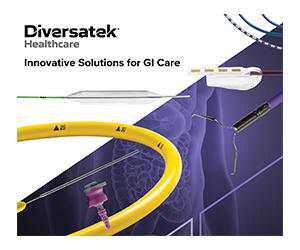Study: Bloating Is Common Among Americans
Nearly one in seven Americans experience bloating on a weekly basis, and most aren’t seeking professional...
An Elusive Disease: Kicking Gastric Cancer in the Gut
By EndoPro Staff Helen Shipstad thought she had an ulcer. The woman from Derbyshire, England said...
Will Smith: ‘I vlogged my colonoscopy’
https://www.youtube.com/watch?v=eWwKQjUyoUc&feature=youtu.be
Business Partnership May Increase Delivery of Gut-Directed Hypnotherapy for IBS Patients
GI OnDEMAND, a virtual integrated-care platform, recently announced a partnership with Mindset Health, the creator of...
Dri-Scope Aid®Jet~Stream with Increased Flow
TRICOR Systems Inc. Launches Dri-Scope Aid®Jet~Stream with Increased Flow Dri-Scope Aid®Jet~Stream Assists in the Drying of...
Large Study Finds New Genetic Risk Factors for Colorectal Cancer
SEATTLE, Washington—A comprehensive analysis of more than 100,000 colorectal cancer (CRC) cases, led by researchers at...
New material could make it easier to remove colon polyps
More than 15 million colonoscopies are performed in the United States every year, and in at...
Fujifilm offerings at Digestive Disease Week 2019
Fujifilm will showcase its portfolio of endoscopic imaging, minimally invasive surgical endoscopy, enterprise imaging, and hepatology...


















